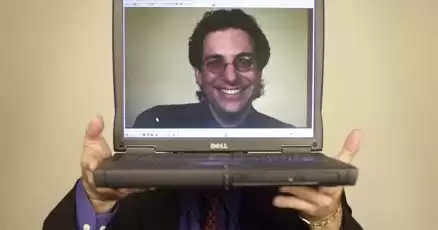Kevin Mitnick, renowned hacker turned security expert and FBI-wanted felon, passes away at 59
Kevin Mitnick, the most celebrated US hacker, has died at the age of 59. Mitnick was known for his pioneering antics in the 1980s and 1990s, tricking employees into helping him steal software and services from large phone and tech companies. He was imprisoned for five years until 2000, after which he became a respected cybersecurity professional, public speaker and author. Mitnick died in Las Vegas on 16 July after a 14-month battle with pancreatic cancer.
Kevin Mitnick, the renowned hacker known for his tricks and exploits in the 1980s and 1990s, has passed away at the age of 59. Mitnick, who was diagnosed with pancreatic cancer, died on July 16 in Las Vegas after a 14-month battle with the disease. His career spanned from being a student tinkerer to a fugitive hunted by the FBI, and finally to a respected cybersecurity professional, public speaker, and author.
Mitnick's journey reflects society's evolving understanding of computer hacking. His experiences helped the public differentiate between serious computer crimes and mischievous acts by young hackers seeking recognition. Throughout his career, Mitnick's focus was not on monetary gain, but rather on obtaining trophies, particularly cellphone codes.
Mitnick gained significant attention when he was arrested in 1995, three years after he had violated probation for a previous computer break-in charge. The government accused him of causing millions of dollars in damages to companies like Motorola, Novell, Nokia, and Sun Microsystems by stealing software and altering computer code.
Despite the difficulty federal prosecutors faced in gathering evidence of major crimes, Mitnick reached a plea agreement in 1999 that credited him for time served. After his release from prison in January 2000, Mitnick emphasized that his crimes were simply acts of trespassing driven by a desire to learn about phone networks.
Initially, Mitnick was barred from using computers, modems, cellphones, and any other devices with internet access for three years. These restrictions were gradually eased, and he was not allowed back online until December 2002.
Mitnick's expertise lay in social engineering, a technique that involved impersonating company employees to obtain passwords and data. This method, known as pretexting, remains one of the most effective hacking techniques, requiring extensive research to execute successfully.
Mitnick's hacking activities were driven by curiosity, intellectual challenge, thrill, and an escape from reality. He testified before the U.S. Senate in 2000, where he emphasized that his hacking was a quest for knowledge and an intellectual pursuit.
Mitnick's first arrest for computer crimes occurred when he was just 17 years old. He had walked into a Pacific Bell office and took computer manuals and codes for digital door locks. For this offense, he served a year in a rehabilitation center, where a federal judge deemed him addicted to computer tampering.
Mitnick's upbringing in the Los Angeles suburb of Panorama City was marked by his parents' divorce when he was three years old. As an overweight and lonely teenager, he dropped out of high school and found companionship among phone phreaks, a group of teenagers who made free long-distance calls using stolen phone codes.
Mitnick's interest in phones eventually led him to computers, where he discovered a passion for gaining access and power. He began breaking into voice mail and computer systems, searching through private files, and taunting those who crossed his path.
In conversations with investigative journalist Jonathan Littman, Mitnick revealed a different side of himself. He appeared more fearful and disturbed than vindictive, painting a picture of a troubled young man rather than a menacing threat.
While a computer file containing 20,000 credit card numbers was found on Mitnick's computer after his 1994 arrest, there is no evidence to suggest that he ever used any of the accounts.
Mitnick became a cause célèbre for hackers who believed his five-year prison sentence was excessive. Some hackers defaced websites to demand his release, including The New York Times, which was accused of exaggerating the danger Mitnick posed to society.
Mitnick authored several books, including "The Ghost in the Wires," which chronicles his life as a wanted hacker, as well as "The Art of Deception," co-written with others.
Kevin Mitnick's legacy lies in his ingenuity, which challenged systems, sparked dialogue, and pushed the boundaries of cybersecurity. He will be remembered as a testament to the power of curiosity and the ever-evolving landscape of hacking.












Comments on Kevin Mitnick, renowned hacker turned security expert and FBI-wanted felon, passes away at 59